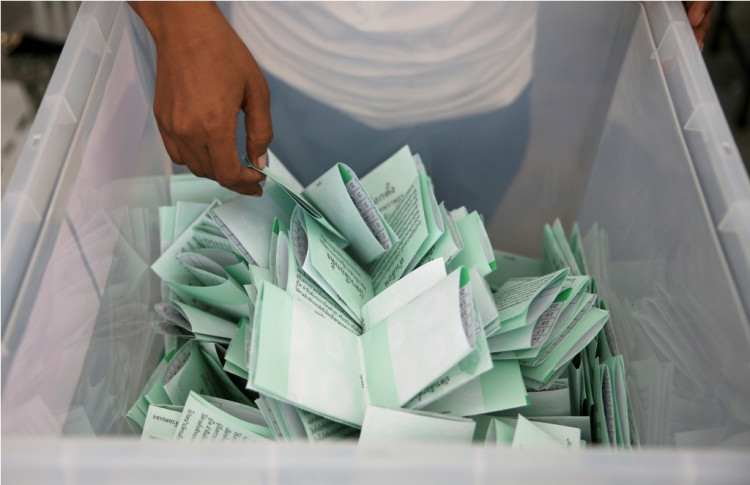An opinion-based survey by Suan Dusit Rajabhat University revealed that only a small percentage of the 1,239 people surveyed believe the March 24 election results will be acceptable for the Thai people.
According to the Bangkok Post, the Suan Dusit Poll suggested that 43.15 percent of respondents had worries about the accuracy of election results. 41.09 percent expressed fears over the potential disputes that could come from unacceptable results.
While only 25.98 percent of the respondents doubted the calculation methods used by Thailand's Election Commission (EC), analysts pointed out that the huge number of respondents indicating doubts about the results that will be out on May 9 could trigger challenges against the EC calculations.
The highlight of the survey was the question of whether respondents believe the political atmosphere will be calm after the results are unveiled. 36.56 percent said they believe chaos may rise after results are published since Thailand's election policies speak of double standards.
Despite apparent fear among many of the respondents, the survey came out with 45.20 percent who said they think the situation will be the same. They argued that Thailand has been suffering from political issues even before the elections in March.
Meanwhile, the Thai economy has reportedly been impacted by uncertainties that this year's elections brought in. Some economists said incumbent Prime Minister Prayut Chan-o-cha's return could be seen as a continuation of standard policies in the Thai government.
Other analysts said if the rival Pheu Thai coalition wins, there could be huge changes in the economic and political settings of Thailand. During the campaign, the Pheu Thai parties did not indicate significant economic advocacies or plans.
Thailand is currently experiencing a lack of investments that are needed to drive growth in the country. The tourism sector, in particular, has been suffering from weak revenue since 2018 and political experts expect the prime minister to address the issue.
Furthermore, exports have been slow during the first quarter of 2019, triggering fears about the effects of the election to the Thai economy. Thailand's central bank is also expected to retain its policy rate at 1.75 percent this month until the new government is settled in.
ING said by the end of April that it will retain its view of the Thai baht against the U.S. dollar to play along 32 until the third quarter of this year. The economy and finance agency also noted that the country's economic growth concluded on a "weak" note at Q1 as impacted by political uncertainty.






